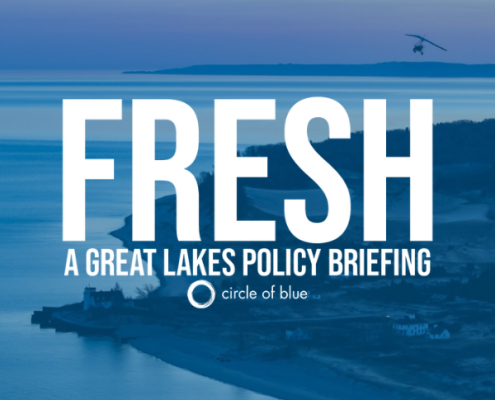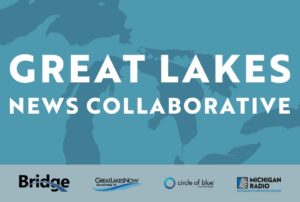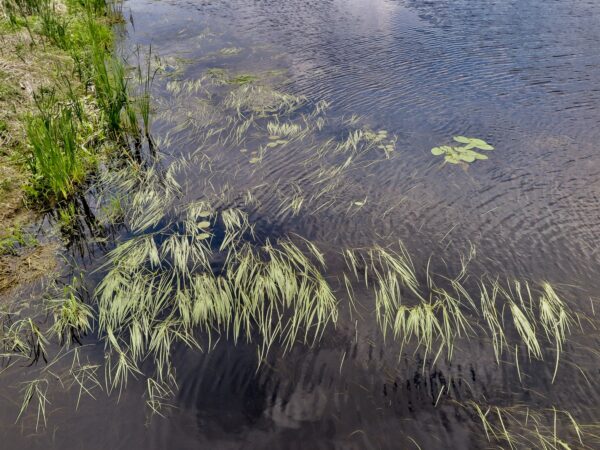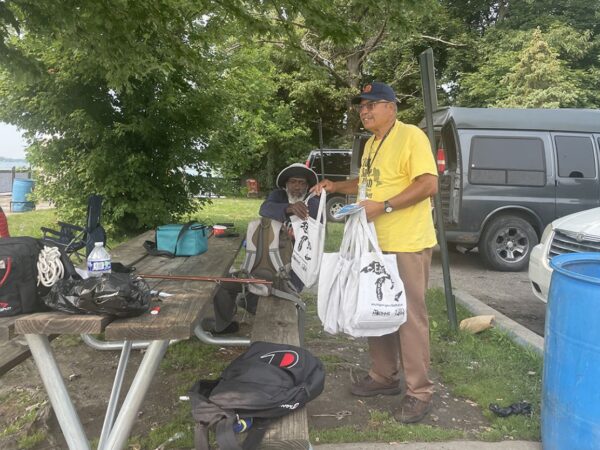
May 16, 2023
Fresh is a biweekly newsletter from Circle of Blue that unpacks the biggest international, state, and local policy news stories facing the Great Lakes region today. Sign up for Fresh: A Great Lakes Policy Briefing, straight to your inbox, every other Tuesday.
— Christian Thorsberg, Interim Fresh Editor
This Week’s Watersheds
- A new law in Wisconsin will fund more sustainable, watershed friendly farming methods.
- Eleven riparian conservation projects in Michigan will receive $1.7 million from the state Department of Natural Resources.
- Ohio residents, fearing their drinking water will be contaminated by increasing amounts of fracking waste, are standing up to oil companies and injection-well owners.
- About 45,000 cubic yards of contaminated sediment are being removed from rivers in downtown Milwaukee.
A Georgian Bay town joins the fight for accountability as rushed development plans are poised to threaten the health of multiple Great Lakes ecosystems.
“The municipal sector agrees with the province that more housing needs to be built, but it’s a question of the approach. We want a watershed perspective … how can we build housing in a way that will protect our freshwater resources and ensure communities have continued access to clean water as they grow in size?” — Phillipe Murphy-Rhéaume, Canada policy director at the Great Lakes and St. Lawrence Cities Initiative.
The Township of Archipelago, which sits on the shores of Georgian Bay in the Lake Huron watershed, is seeking multinational support in its opposition to Bill 23, the “More Homes Built Faster Act,” The Narwhal reports. The bill, which streamlines construction of 1.5 million homes over the next decade in Ontario, also changes environmental protections and regulations required for development plans.
Opponents of the bill continue to cite the Ontario government’s lack of consultation with Indigenous communities, and the negative impact the project will have on both the region — which includes “the already eroding Lake Erie coastline in the Windsor region to the depleting ice cover of Lake Superior in northern Ontario,” The Narwhal reports — and the larger Great Lakes ecosystem. Many are calling for the plans to include, at minimum, greater environmental accountability, especially within such a crucial freshwater haven.
Archipelago has filed a resolution demanding the province’s administration reinstate environmental regulations and conduct analyses that have not yet occurred.
The resolution is expected to pass at the Great Lakes and St. Lawrence Cities Initiative’s next meeting in June — the initiative consists of “more than 200 U.S. and Canadian mayors and government officials that work to protect waterways.” Such a decision would invigorate the already significant opposition to Bill 23, putting further pressure on the Doug Ford administration.
Fresh from the Great Lakes News Collaborative

- Sand and gravel industry alleges local governments not qualified to decide whether to approve new mines — Michigan Radio
- Anishinaabe tribes work to save Michigan whitefish — Bridge Michigan
- Once beset by industrial pollution, Rouge River on a slow path to recovery — Bridge Michigan/Great Lakes Now
The Great Lakes News Collaborative includes Bridge Michigan; Circle of Blue; Great Lakes Now at Detroit Public Television; and Michigan Radio, Michigan’s NPR News Leader. We work together to produce news and information about the impact of climate change, pollution, and aging infrastructure on the Great Lakes and drinking water. This independent journalism is supported by the Charles Stewart Mott Foundation. Find all the work here.

2023 Wisconsin Act 5 Is Signed Into Law
A new law which incentivizes sustainable farming practices was signed into law last week by Wisconsin Gov. Tony Evers, the Milwaukee Journal-Sentinel reports. The law is part of an anti-pollution effort throughout the state, and is meant to protect watersheds from toxic runoff, which often includes eroded soil, phosphorus, or pesticides.
Since 2016 the Wisconsin Department of Agriculture, Trade and Consumer Protection (DATCP) has been giving small funds to farmers who plant cover crops or switch to no-till farming. These practices can limit runoff, but they are expensive to implement. Per a 2021 progress report, the program made a difference: “increased conservation practices prevented an estimated 124,000 pounds of phosphorus and 182,000 tons of eroded soil,” the Journal-Sentinel reports.
But in recent years, there haven’t been enough funds to meet demand. “This year, for example, 45 groups requested more than $1.5 million collectively from DATCP, which was only able to grant $1 million,” the Journal-Sentinel reports.
The new law, called 2023 Wisconsin Act 5, will allow the Wisconsin Department of Natural Resources to provide additional funding to farmers who apply.
In the News
FISH STICKS: The Michigan Department of Natural Resources approved $1.7 million in state funding for 11 conservation projects devoted to fish passage and riparian habitat, The Detroit News reports. Partner contributions of more than $3.2 million boosted total funding to about $5 million. With the money, a series of dam removals, habitat improvements, and culvert inventories and replacements will enhance fish migration in more than 230 miles of streams throughout the state. Shoreline woody habitat structures — sometimes called “fish sticks” — will also be installed in certain channels. These structures, approximately 30-foot-tall trees, will be placed along shorelines to provide habitat and areas of cooler, shaded water for fish, birds, and other wildlife.
MILWAUKEE ESTUARY: For over a century, factory operations and pre-Clean Water Act waste dumping in downtown Milwaukee left the city’s rivers, which flow into Lake Michigan, caked with contaminated sediment, WUMW reports. This legacy is why the Milwaukee estuary has been listed on the EPA’s Great Lakes Areas of Concern list. Crews are now working on a Milwaukee River remediation project, which will remove about 45,000 cubic yards of sediment. The undertaking is estimated to be completed between 2027 and 2030. The EPA says that removing the site from the Areas of Concern list will happen in 2031 at the earliest.
Looking Ahead
PRODUCED WATER: Residents and environmentalists in Ohio are facing off against oil companies, who are dumping “produced water” — wastewater from fracking that contains high levels of radium and salt — into more than 200 underground injection wells, InsideClimate News reports. Concerns abound that leaks in these injection wells, many of which were not originally designed to hold produced water, are tainting clean drinking water reserves and will harm the greater environment. Multiple lawsuits have been filed against injection-well owners in Ohio, and more are likely to come. Pennsylvania and West Virginia, which have fewer available injection wells, have taken to shipping fracking waste into Ohio “24 hours a day, seven days a week,” Bob Lane, an oil and gas operator, told InsideClimate News.
Other News
MINNESOTA’S DRINKING WATER: A new report from the Minnesota Department of Public Health reveals that, despite aging infrastructure, “nearly 98% of Minnesotans who get their drinking water from a community public water system received water that met all federal health-based standards throughout the year.”
NASA: A new NASA satellite, called Surface Water and Ocean Topography (SWOT), launched in December, will have its data shared with the public for the first time this summer, Great Lakes Echo reports. According to the Echo, SWOT “will measure surface currents and the height of water in Earth’s lakes, rivers, oceans and reservoirs,” with particular attention given to studying the Great Lakes.
Catch more news at Great Lakes Now:
FRESH: Research Highlights Gaps in Federal Air Pollution Data



